Top things to do and shoot at Fernando de Noronha
In this post, I will tell you about my experience with the top things to do and shoot at Fernando de Noronha.
Fernando de Noronha is a Brazilian archipelago in the Atlantic Ocean, part of the State of Pernambuco, and located 354 km (220 mi) offshore from the coast.
Fernando de Noronha Marine National Park
You can also find the Fernando de Noronha Marine National Park on the Island, created by federal decree 96.693 on September 14, 1988. The objective is to preserve the natural ecosystem and to support scientific research, environmental education, outdoor recreation, and ecotourism. The Chico Mendes Institute for Biodiversity Conservation (ICMBio) is the area’s manager.
You can easily see dolphins, sharks, and sea turtles, go on a trail, go snorkeling on crystal clear water, and take a boat to the most exotics scenes.
Fernando de Noronha Division
Fernando de Noronha has fourteen beaches. They are divided into the inside (“Mar de Dentro”) and outside (“Mar de Fora”) sea beaches.
The inside sea beaches (Mar de Dentro) face the coast of Brazil, and that’s where you have the best conditions for swimming, because this part of the coast gets sheltered from the wind. The “Mar de Dentro” beaches are Praia do Porto de Santo Antônio, Praia do Cachorro, Praia do Meio, Praia da Conceição, Praia do Boldró, Praia do Americano, Praia do Bode, Praia da Cacimba do Padre, Baía dos Porcos, and Baia do Sancho.
Along the outside sea beaches (Mar de Fora) there are only four beaches: Praia do Atalaia, Enseada das Caldeiras, Praia do Leão, and Baía do Sueste.
Due to the wind, the water from the inside sea beaches is calm from April to September. On the other hand, the outside sea beaches are more tranquil between November and February.
As you will see in this post, the beaches’ sunsets are gorgeous, with high contrast and colors. By the way, you can also find some good places to try long-exposure shots.
Baia do Sancho Beach
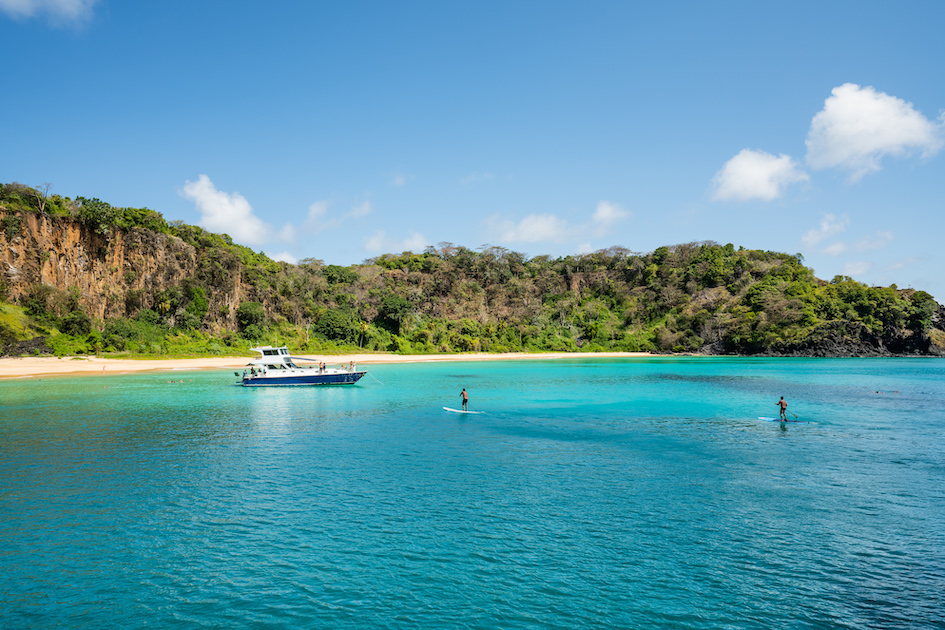
Baia do Sancho is one of the most beautiful beaches in the world.
The color of the water is a clear turquoise blue, and you can easily see fish through it. I took the picture below from the boat’s stairs when I went to Baia do Sancho Beach.
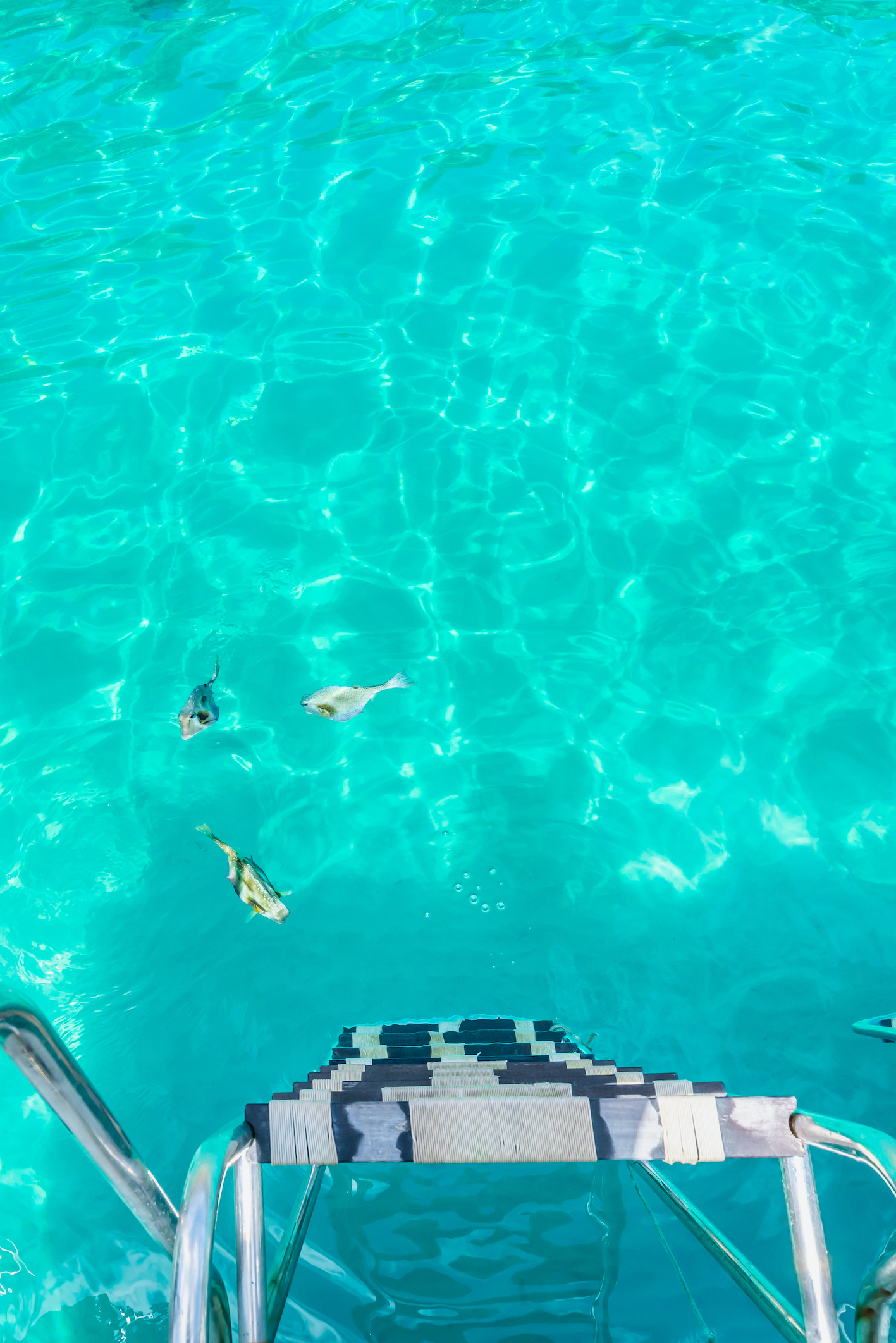 Sony A7RII Camera, FE 16-35mm F4 Sony Zeiss lens.
Sony A7RII Camera, FE 16-35mm F4 Sony Zeiss lens.
You can get access to the beach by boat or by climbing down a stair between the rocks.
If you are going with little children, it’s safer to access the beach by boat.
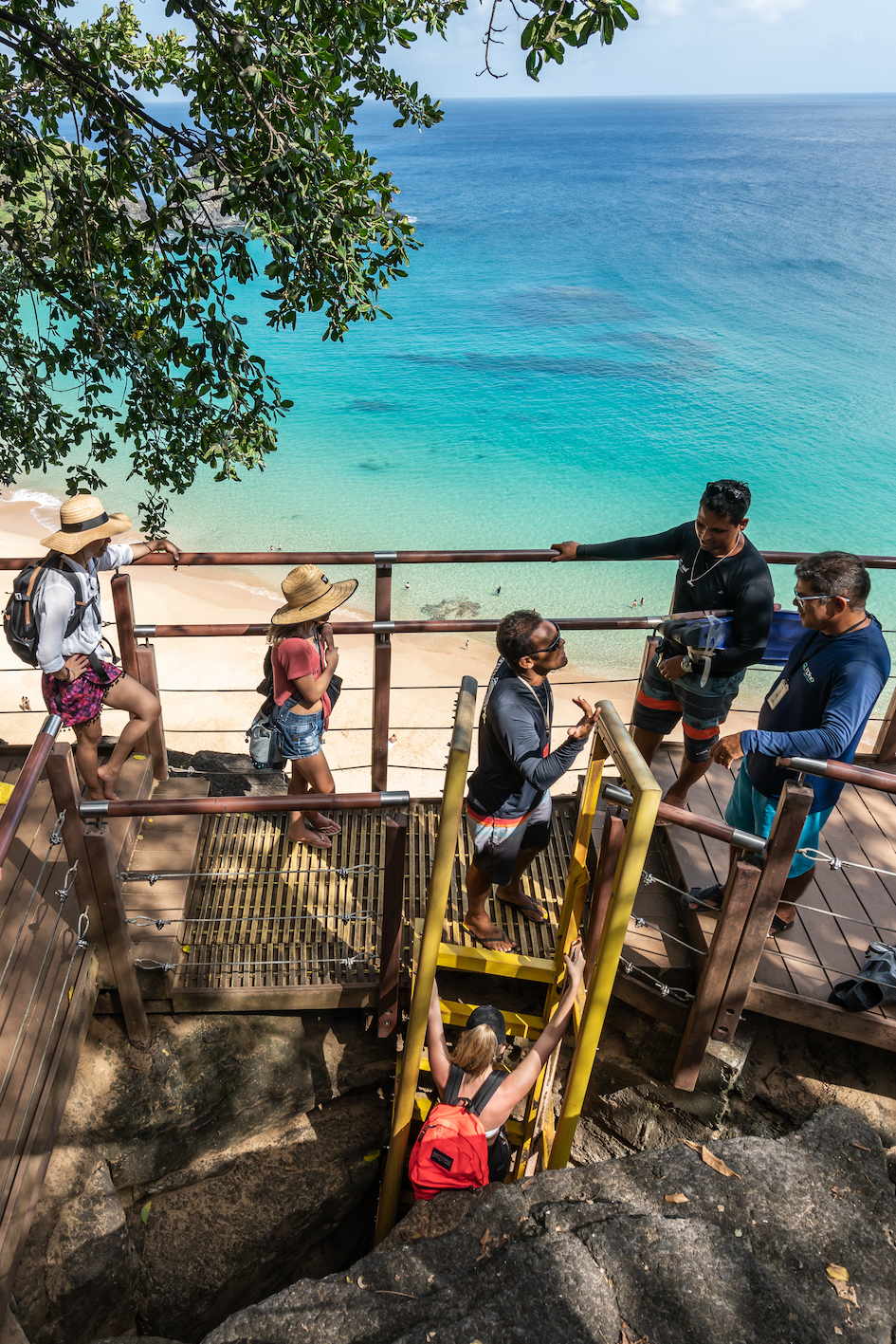 Sony A7RII Camera, FE 16-35mm F4 Sony Zeiss lens.
Sony A7RII Camera, FE 16-35mm F4 Sony Zeiss lens.
The beach is astonishing, and the colors get amazing in the pictures.
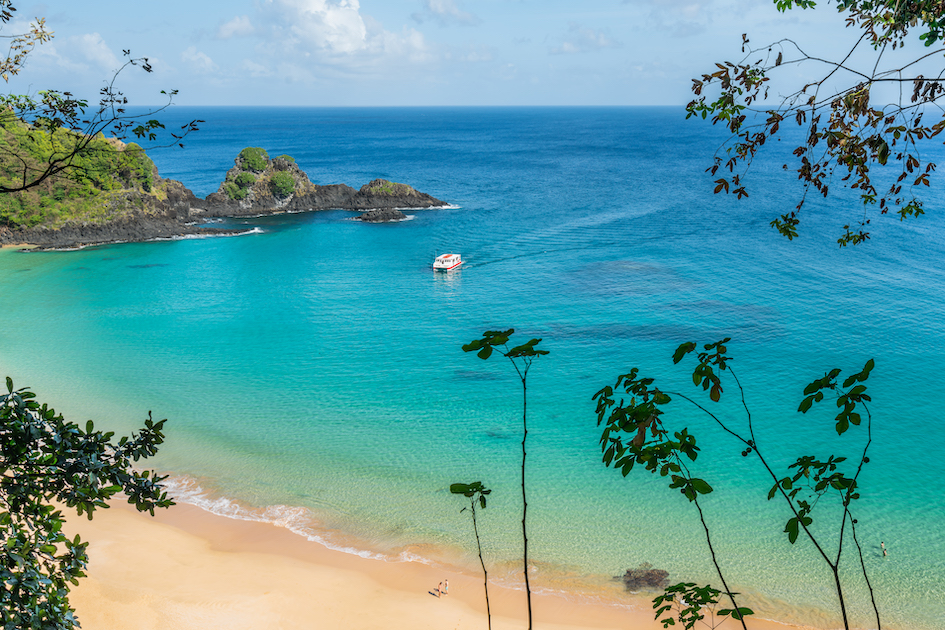 Sony A7RII Camera, FE 16-35mm F4 Sony Zeiss lens.
Sony A7RII Camera, FE 16-35mm F4 Sony Zeiss lens.
In 2022, Tripadvisor ranked as the #7 best beach in the world.
Vila dos Remedios
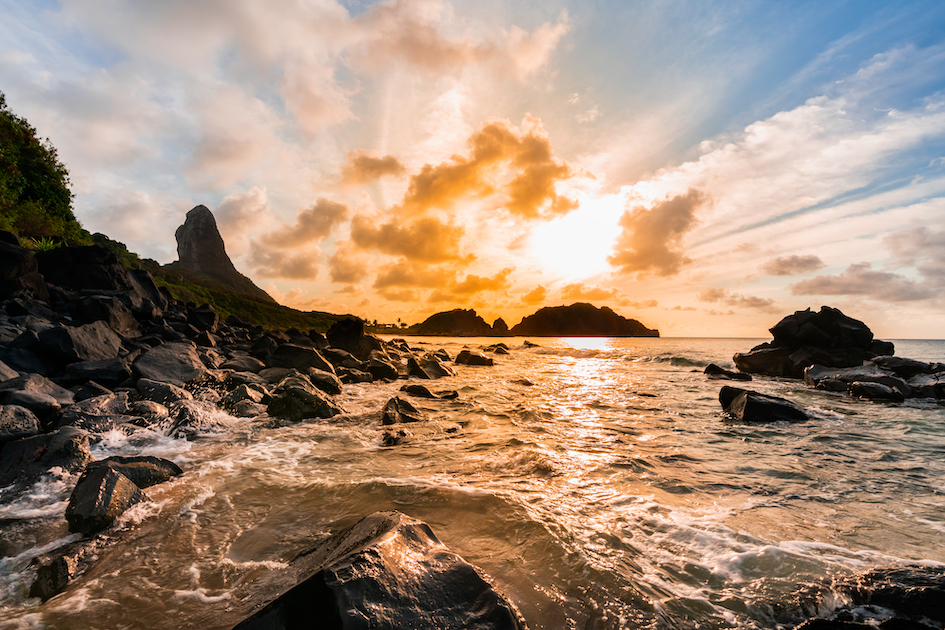
Cachorro beach is the closest beach to Vila dos Remedios, downtown, and it is one of my favorites.
The access is easy. If you stay at Vila dos Remedios, you can go there on foot and take pictures of the city, the Church and the beautiful ruins.
Art center at Vila dos Remedios:
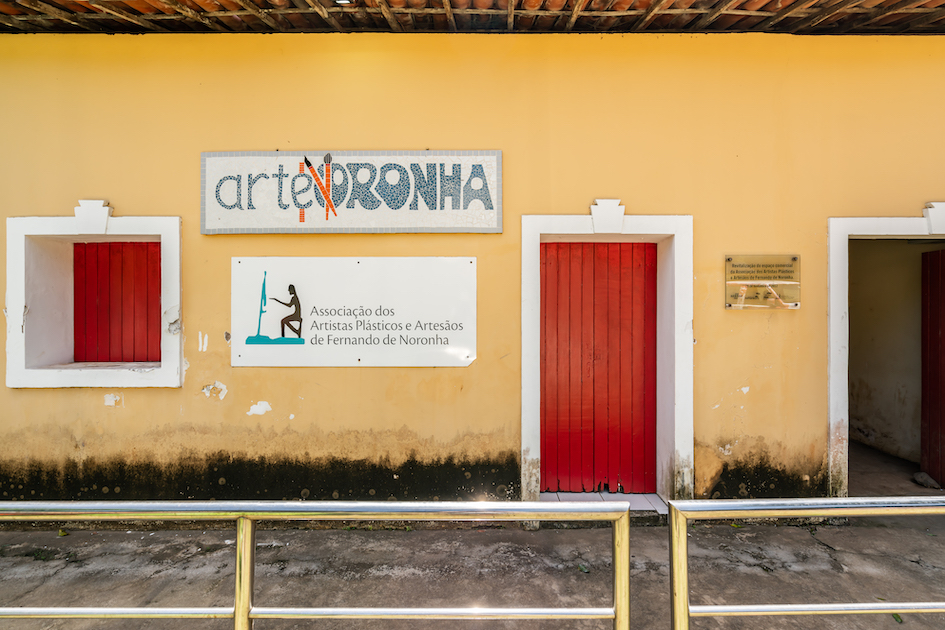
Church of Our Lady of Good Remedy at Fernando de Noronha, also called Nossa Senhora dos Remedios Church:
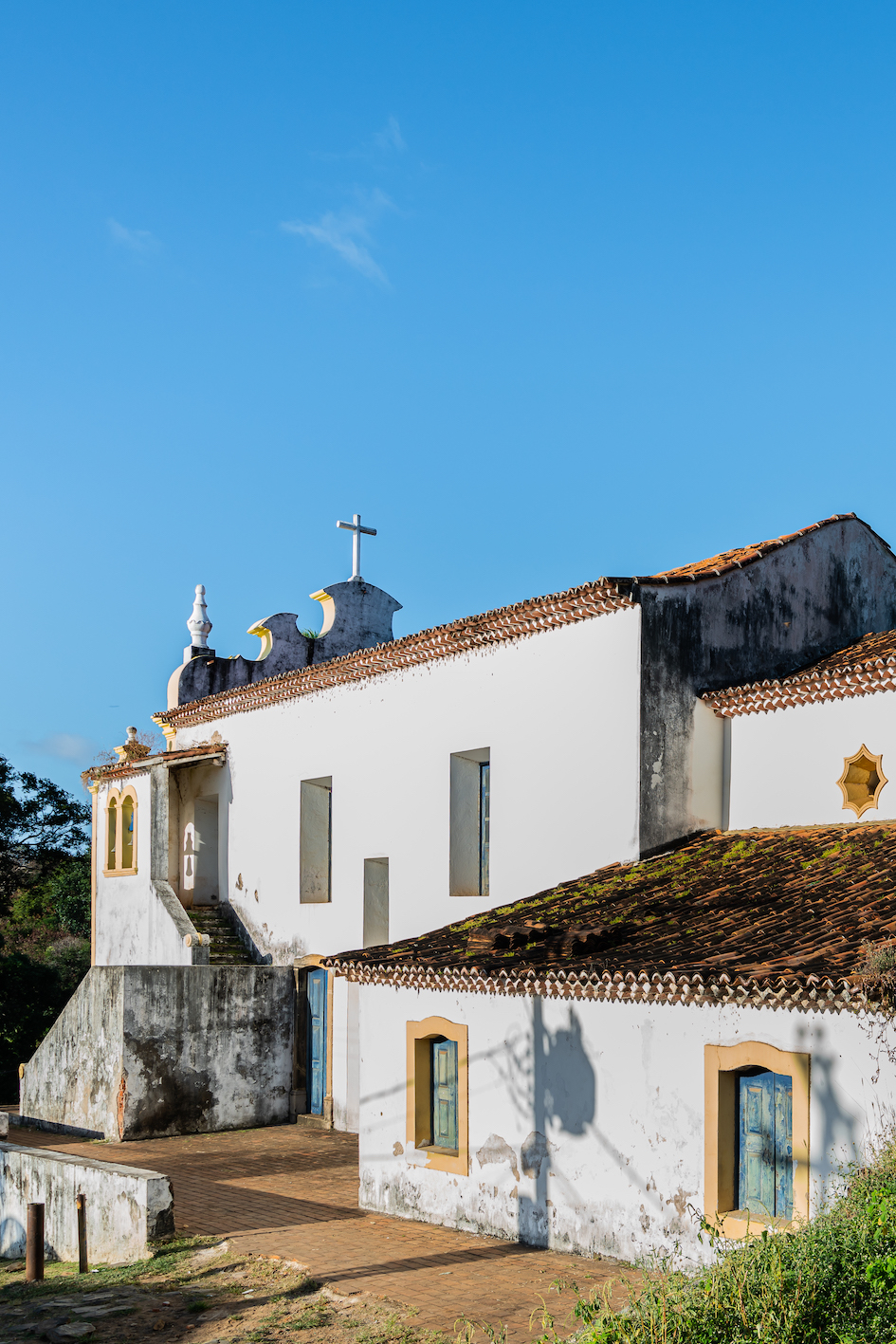 Sony A7RII Camera, FE 16-35mm F4 Sony Zeiss lens.
Sony A7RII Camera, FE 16-35mm F4 Sony Zeiss lens.
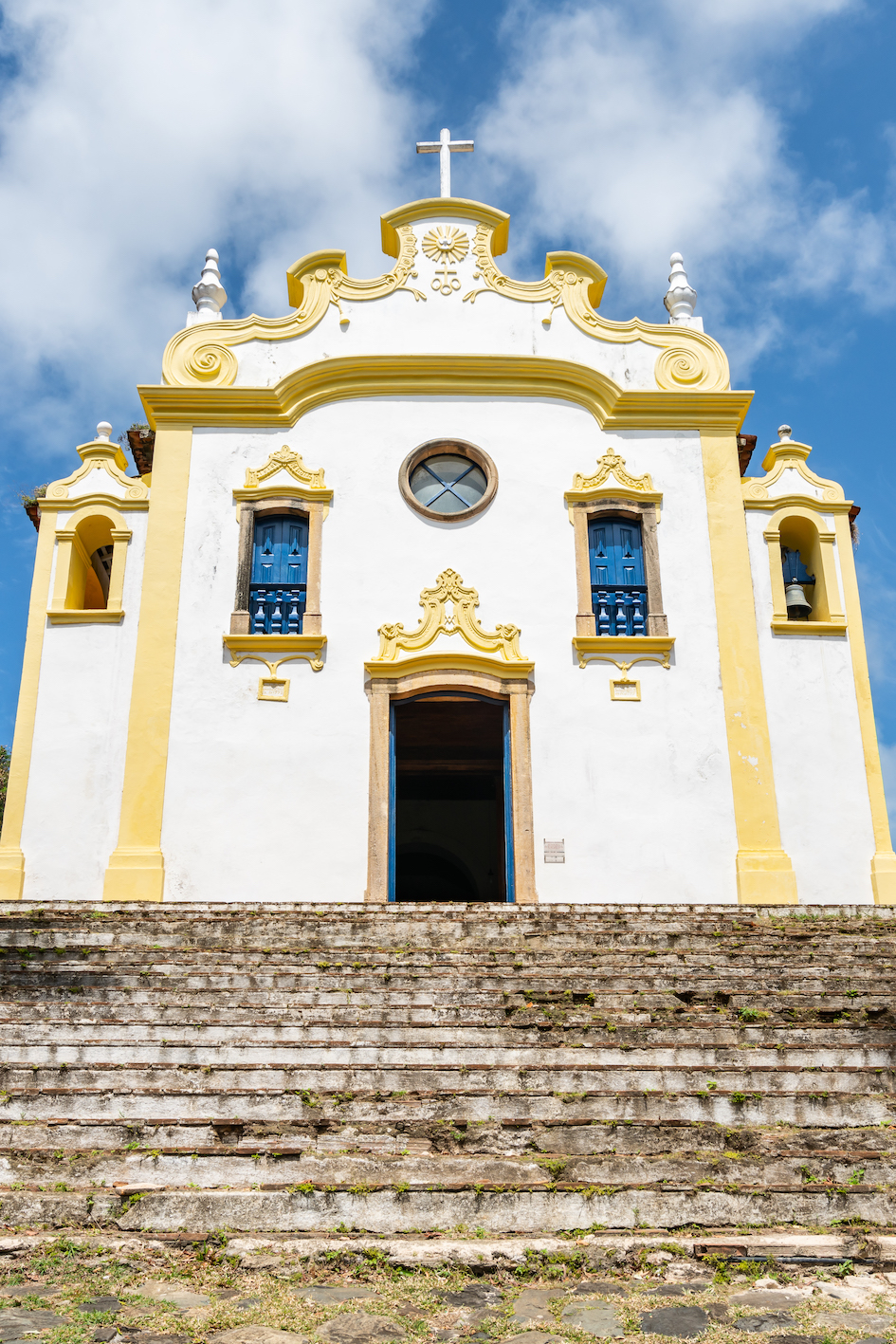 Sony A7RII Camera, FE 16-35mm F4 Sony Zeiss lens.
Sony A7RII Camera, FE 16-35mm F4 Sony Zeiss lens.
The Church of Our Lady of Good Remedy, built-in 1737, is located in Vila do Remedios. It has a baroque style and looks beautiful from the outside, but it needs a good renovation from the inside:
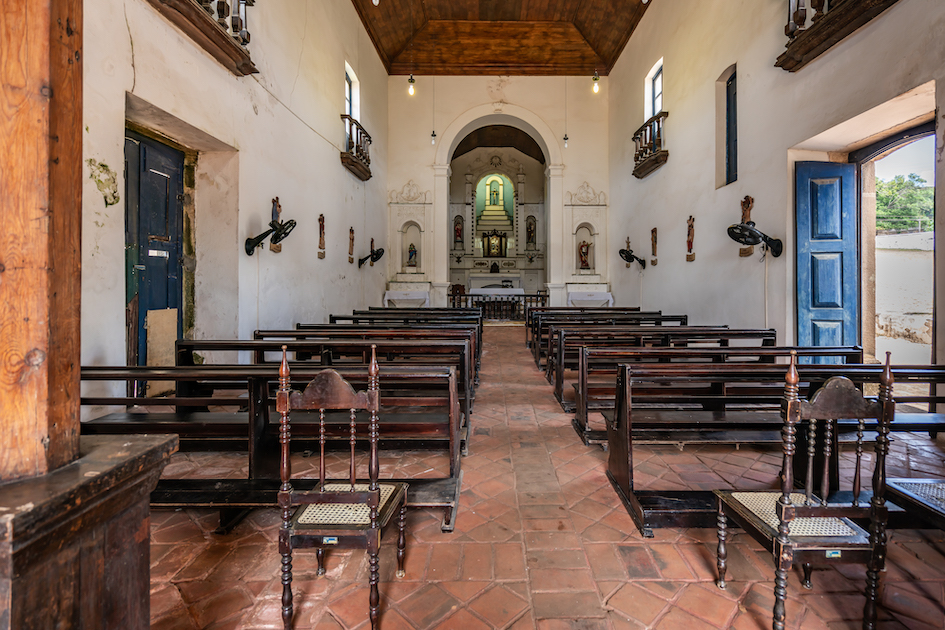
Going down the way to Cachorro Beach, you can also find the Sao Miguel Palace, which is the administrative headquarter of Fernando de Noronha:
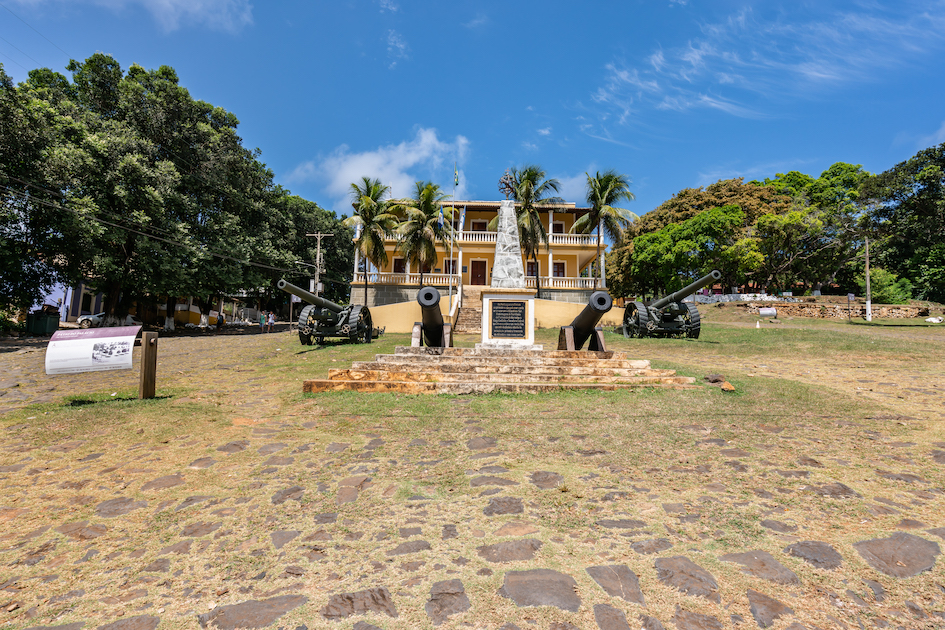 Sony A7RII Camera, FE 16-35mm F4 Sony Zeiss lens.
Sony A7RII Camera, FE 16-35mm F4 Sony Zeiss lens.
Close to the Cachorro beach, you can take a trail with beautiful ruins and banians trees.
The picture below shows the Ruins of Reduto de Santana Fort, called Reduto do Armamento, at the Blue Coast Trail, between Meio Beach and Cachorro Beach.
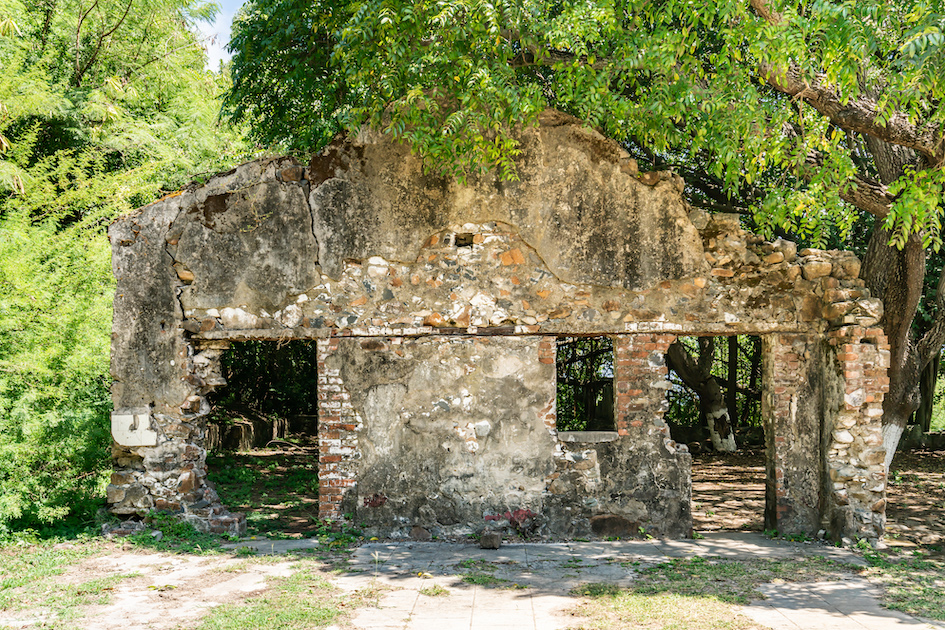 Sony A7RII Camera, FE 16-35mm F4 Sony Zeiss lens.
Sony A7RII Camera, FE 16-35mm F4 Sony Zeiss lens.
Colossal banyan tree at the Blue Coast Trail:
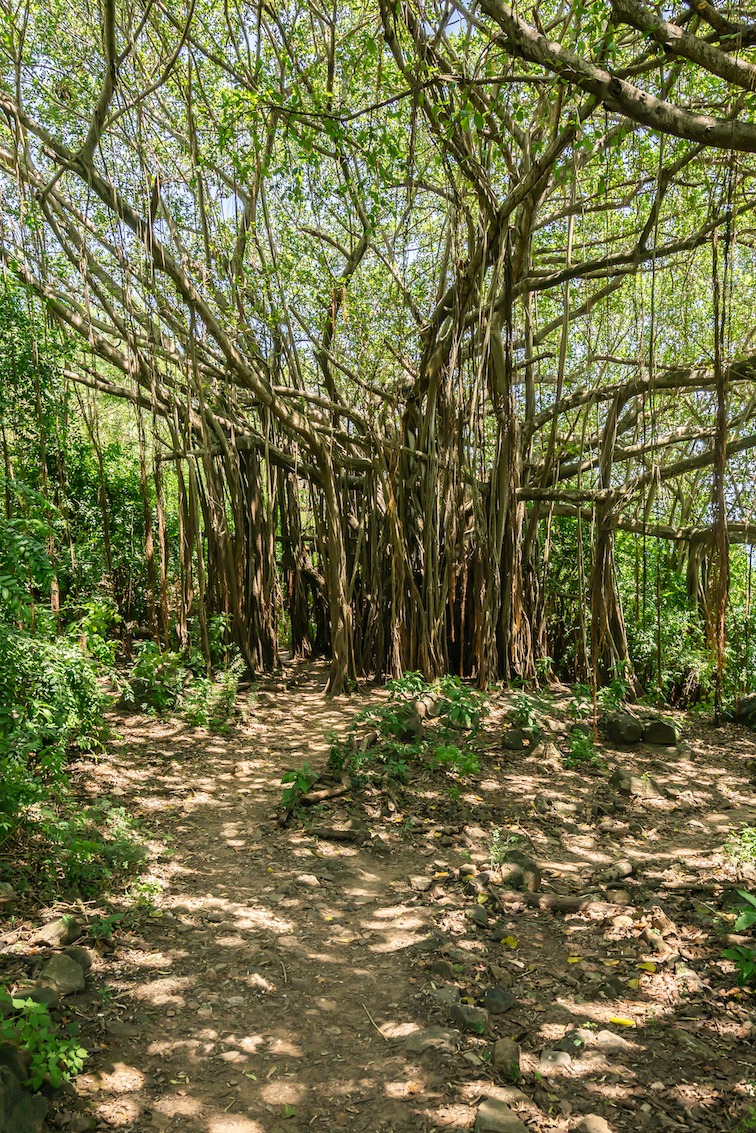 Sony A7RII Camera, FE 16-35mm F4 Sony Zeiss lens.
Sony A7RII Camera, FE 16-35mm F4 Sony Zeiss lens.
Next to the Ruins of Reduto de Santana Fort, you can finally go downstairs and get to Cachorro Beach.
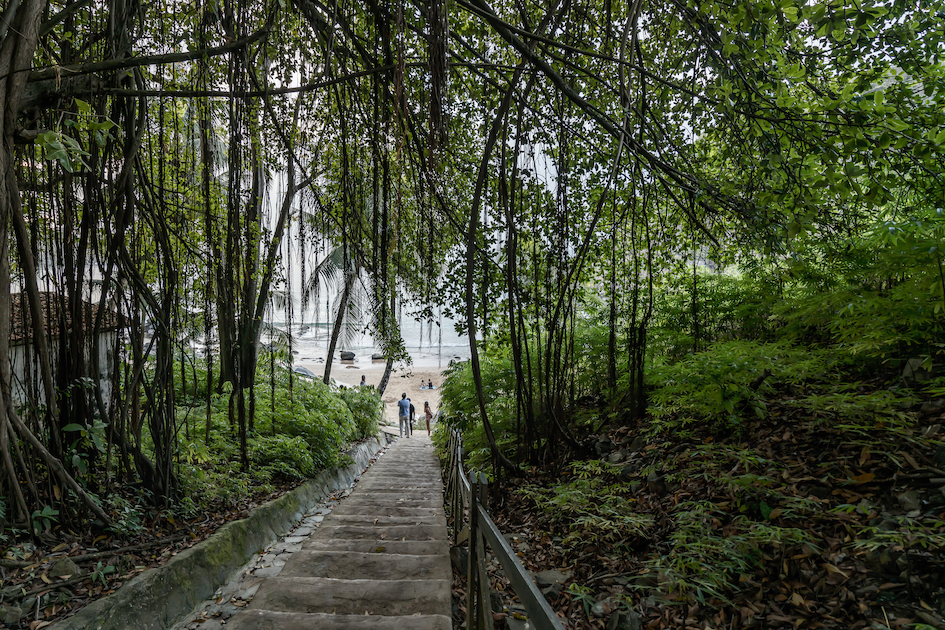 Sony A7RII Camera, FE 16-35mm F4 Sony Zeiss lens.
Sony A7RII Camera, FE 16-35mm F4 Sony Zeiss lens.Praia do Cachorro Beach
The sunset at Cachorro Beach is breathtaking! It is an excellent place if you want to practice long-exposure shots.
I took the picture below with 30 seconds of exposure and a 10-stop Neutral Density Filter. If you are interested in Long-Exposures, don’t miss the tips in the post “How to shoot Long-Exposure Photos by Night and Day.”
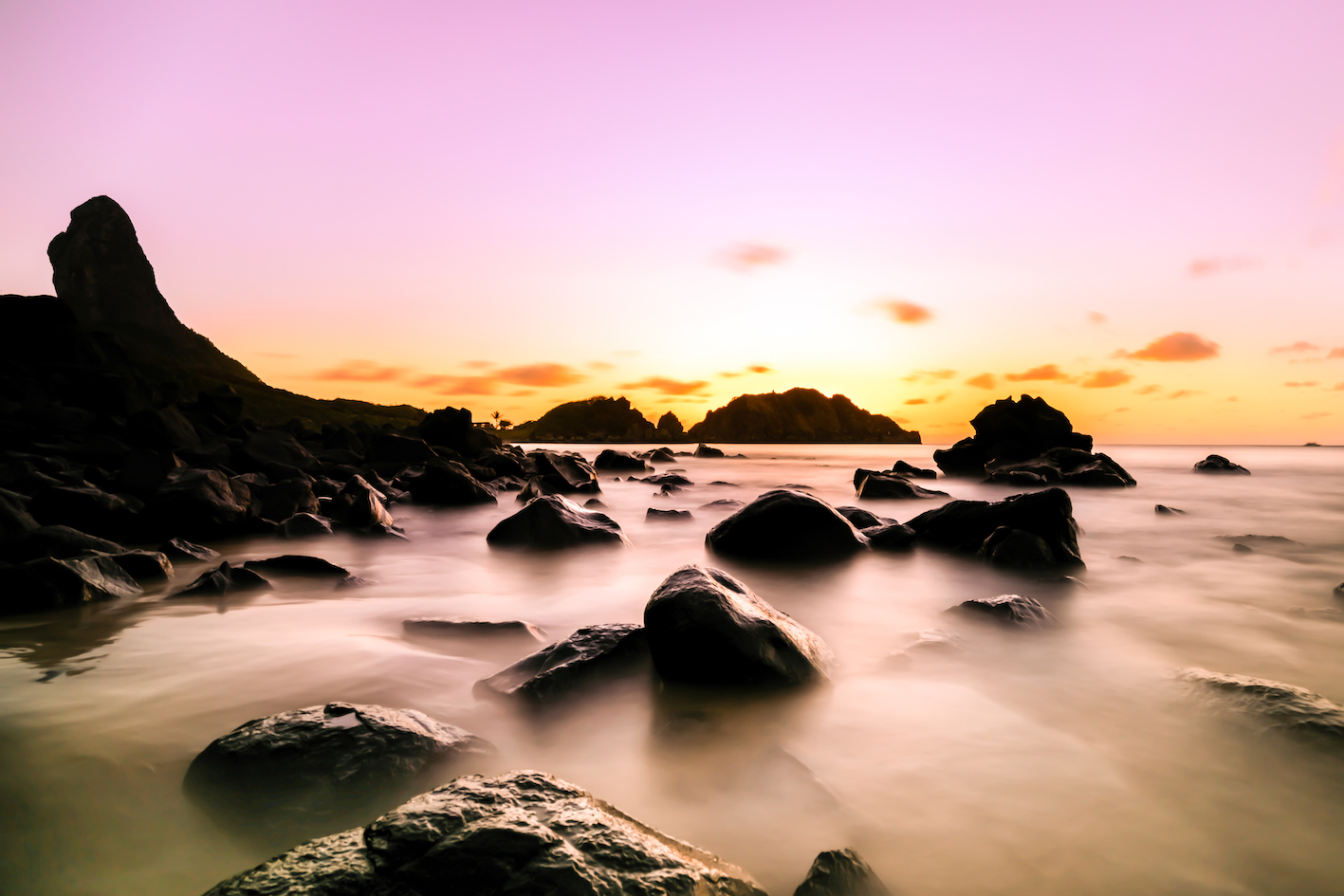 Sony A7RII Camera, FE 16-35mm F4 Sony Zeiss lens.
Sony A7RII Camera, FE 16-35mm F4 Sony Zeiss lens.
On the right side of the beach, among the rocks, you can find the “Buraco do Galego,” a natural stone swimming pool. Cachorro Beach is one of the busiest beaches in Fernando de Noronha.
Along the beach, you can also find a place called “Bar do Cachorro” where you can have a drink and eat some snacks.
Porto de Santo Antônio Beach
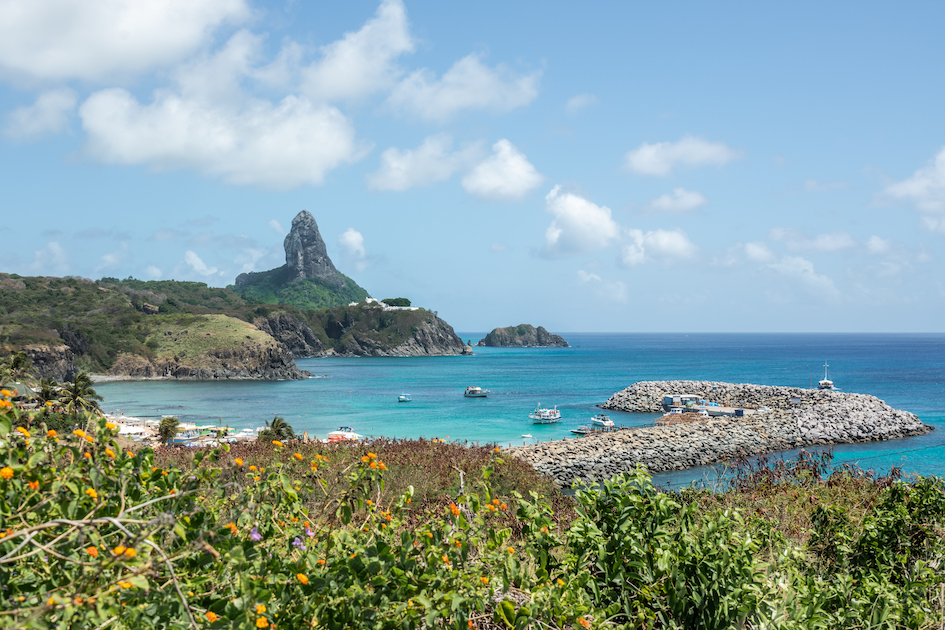 Sony A7RII Camera, FE 16-35mm F4 Sony Zeiss lens.
Sony A7RII Camera, FE 16-35mm F4 Sony Zeiss lens.
Porto de Santo Antonio Beach has many sea animals, like turtles, small sharks, and dolphins.
It is a beach and natural harbor where you can take a boat or go diving and snorkeling.
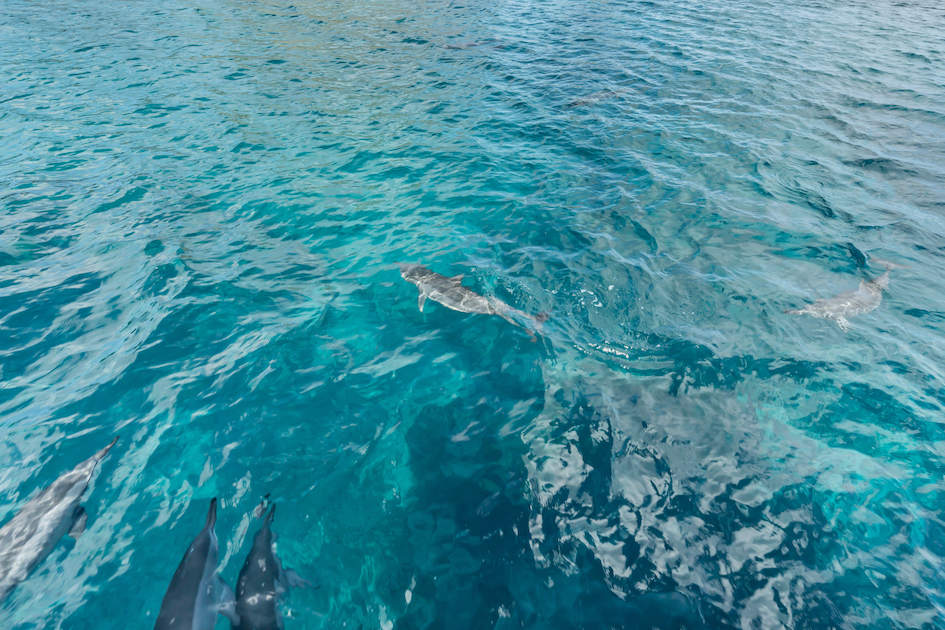
When I was there, I took a boat, and it was a fantastic scene to see the dolphins swimming so near and joyful.
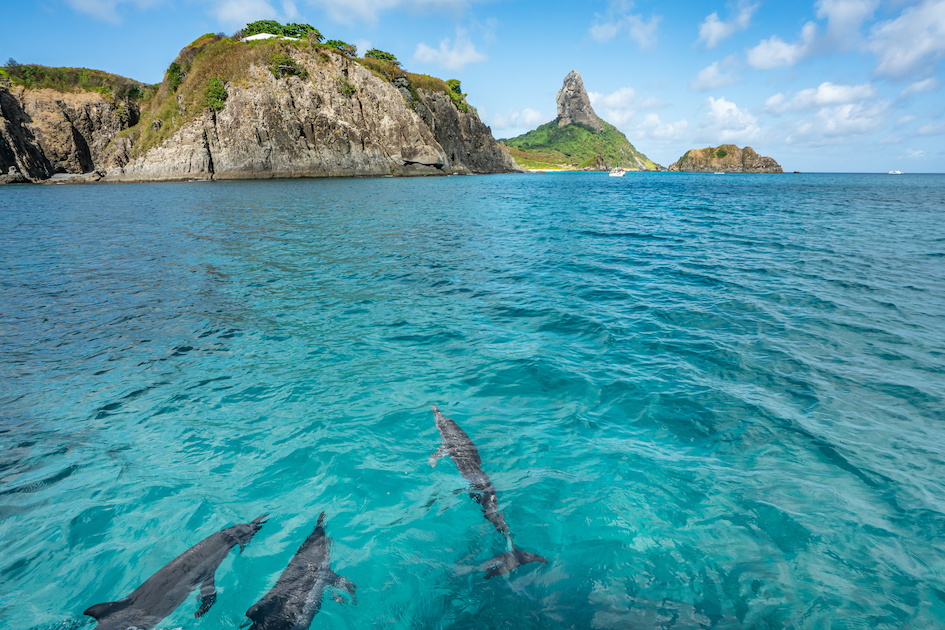
Sony A7RII Camera, FE 16-35mm F4 Sony Zeiss lens.
Cacimba do Padre beach and the Dois Irmãos Hill
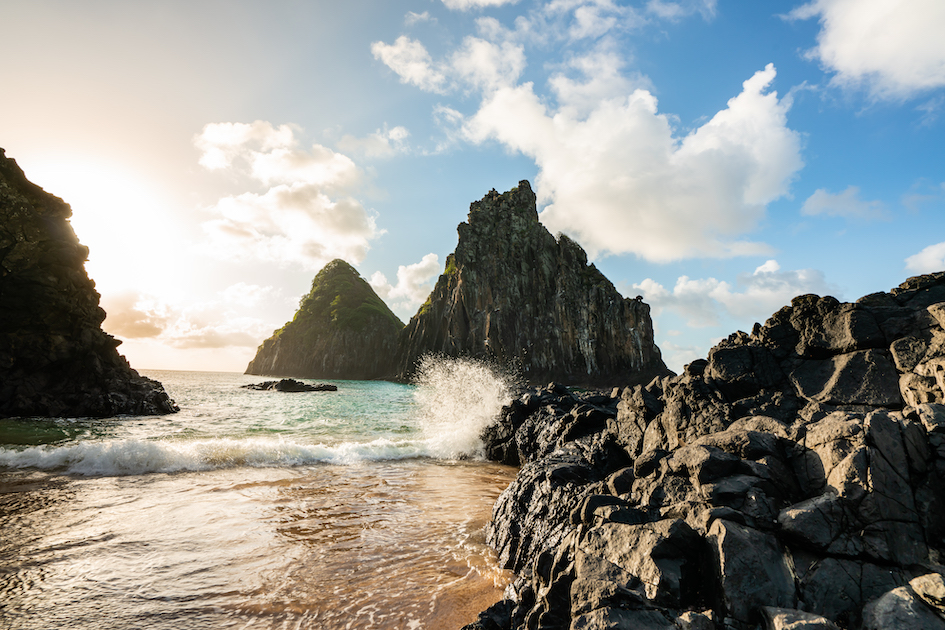 Sony A7RII Camera, FE 16-35mm F4 Sony Zeiss lens.
Sony A7RII Camera, FE 16-35mm F4 Sony Zeiss lens.
Cacimba do Padre, originally called Quixaba beach, has one of the most famous postal cards at Fernando de Noronha. It is a beautiful pair of rocks, Known as the Morro Dois Irmão, Two Brothers Hill, or Hill Brothers.
You can also see the Two Brothers Hill from Baia dos Porcos Beach. It is a classic picture of Fernando de Noronha:
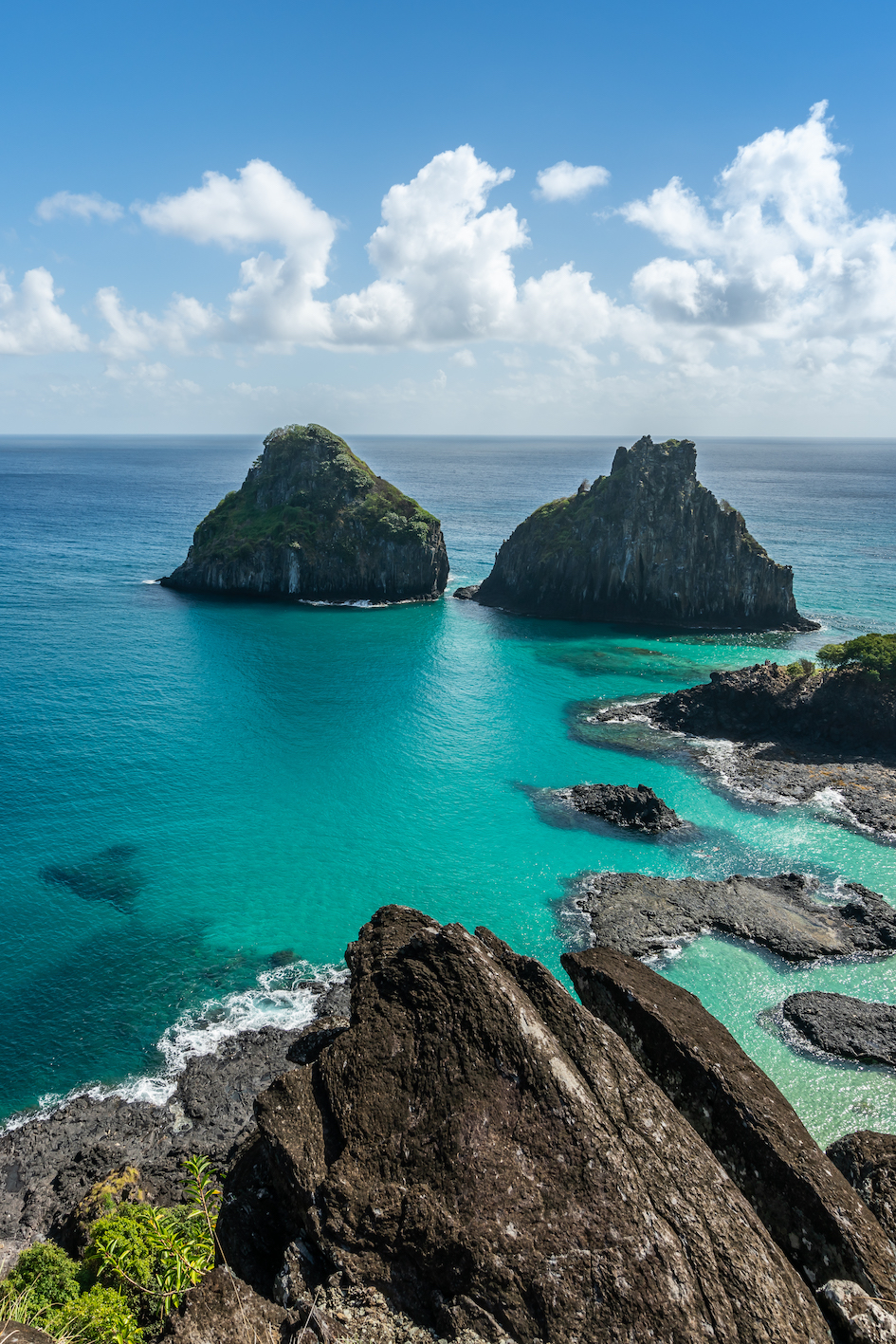 Sony A7RII Camera, FE 16-35mm F4 Sony Zeiss lens.
Sony A7RII Camera, FE 16-35mm F4 Sony Zeiss lens.Leão Beach
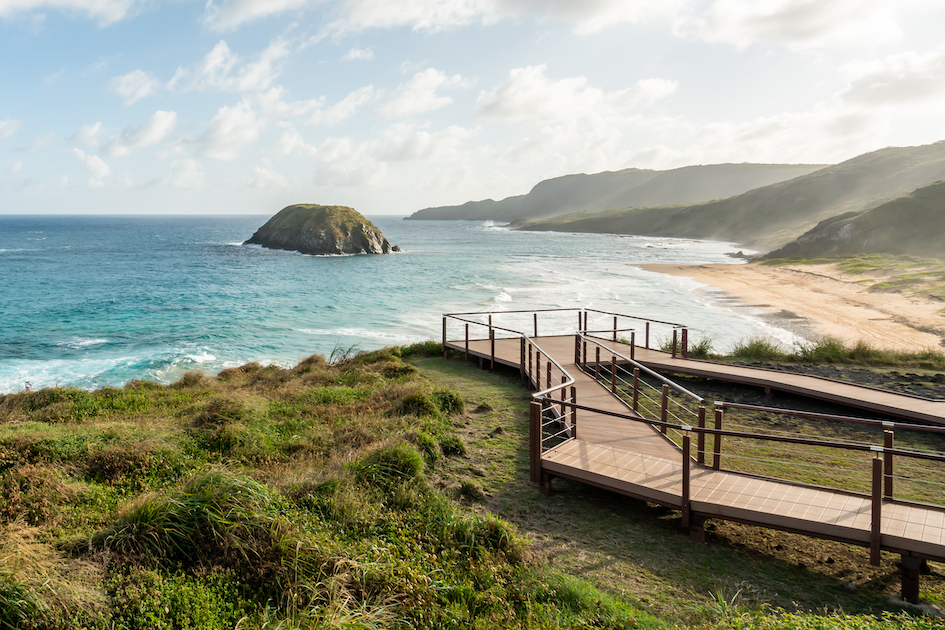
Praia do Leão beach or Lion Becah got that name from the rock formation that looks like a sea lion lying down. It has the most significant extension area in Fernando de Noronha.
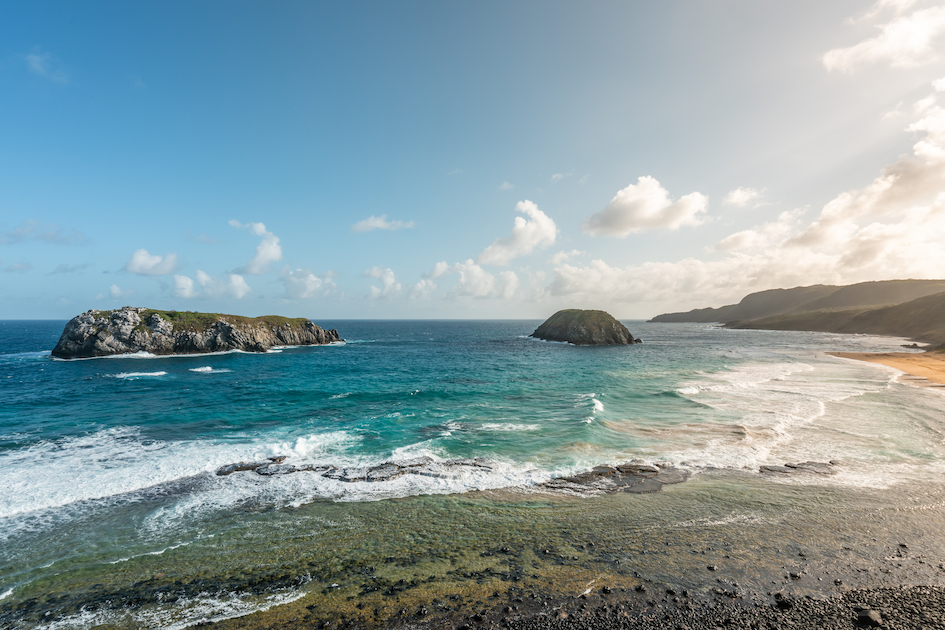
Sometimes the beach is closed, especially between January and June, because it is the main egg-laying ground for sea turtles.
Baia do Sueste Beach
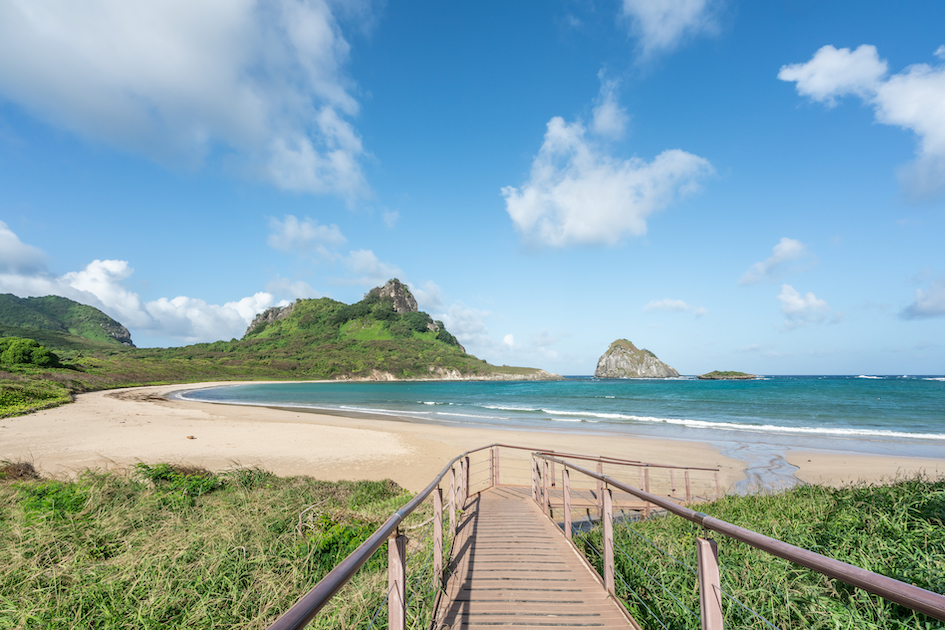
It is a wildlife sanctuary in the archipelago. At Baia do Sueste, you can easily see sea turtles, sharks, rays, and colorful fish.
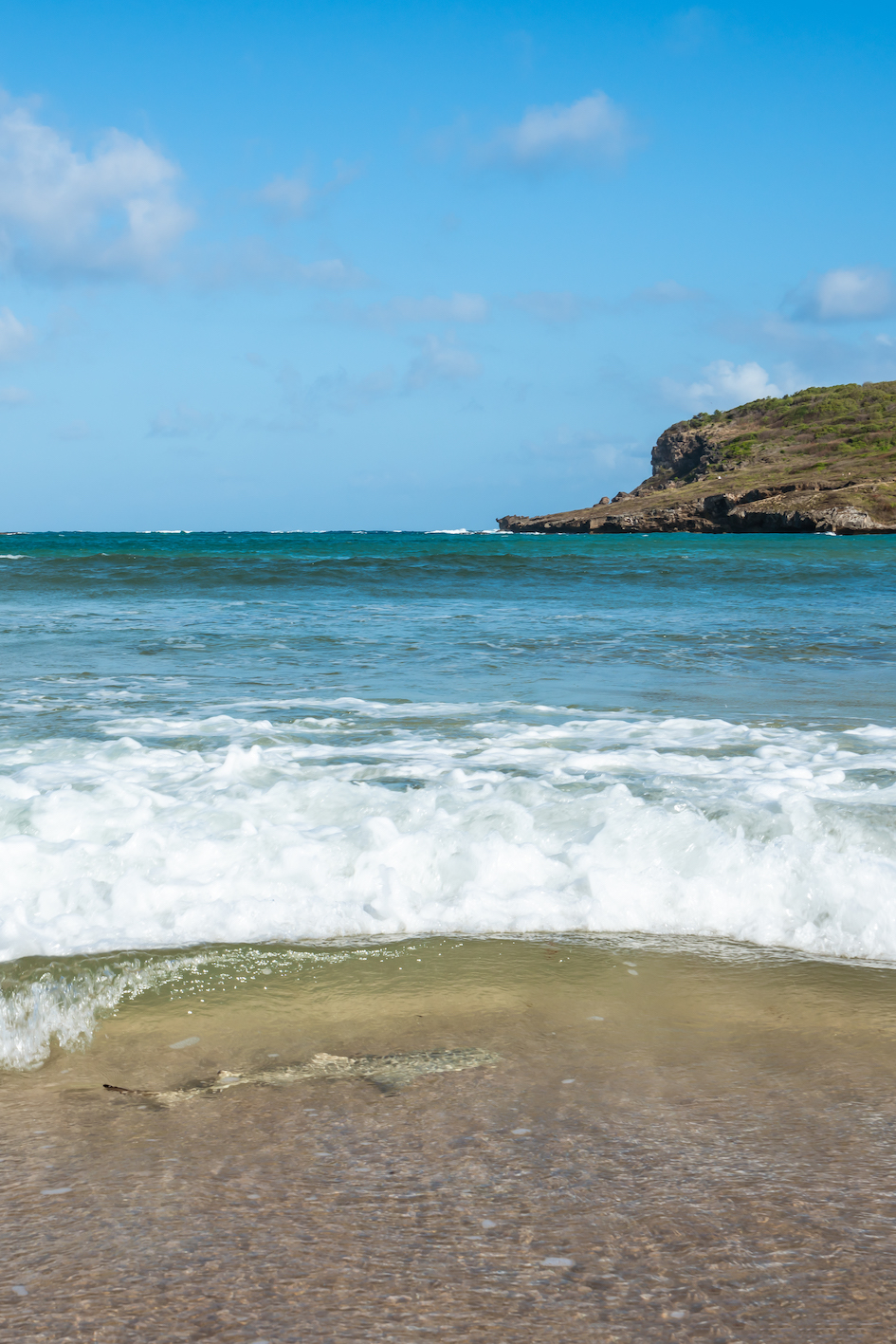
Sony A7RII Camera, FE 16-35mm F4 Sony Zeiss lens.
Unfortunately, in January 2022, a child was bitten by a shark at Baia do Sueste, and the beach was closed indefinitely.
In Conclusion
To sum up, nature in Fernando de Noronha is gorgeous, where you can still see views untouched by man.
But be prepared because going to Fernando de Noronha is not a cheap trip. Hotels, food, and drinks are expensive when compared to prices in cities like Rio de Janeiro, and São Paulo, in Brazil.
All visitors must pay an environment preservation tax (Taxa de Preservação Ambiental – TPA) to visit Fernando de Noronha, which starts at around US$14 for one day and increases per number of days you spend there. You can pay the tax online, at the airport, or upon arrival. Check the values before going in case of any changes.
Moreover, you should also pay an ecological tax to enter the Island’s national park, which must be paid even for the briefest of trips and will be valid for ten days. It costs around US$20 for Brazilians and US$40 for foreigners.
If you are a nature lover, a landscape photographer, or someone wishing to take a break from the city, Fernando de Noronha is one of the most beautiful places to visit on Earth.
11 Comments
Pingback:
Pingback:
Pingback:
joker 123
Thanks for sharing your info. I truly appreciate your efforts and I
will be waiting for your further write ups thank you once again.
Paula Montenegro
You’re welcome! Thank you very much for your interest!
cmd368
I know this if off topic but I’m looking into starting my own weblog and was curious what all
is needed to get set up? I’m assuming having a blog like yours would cost
a pretty penny? I’m not very web smart so I’m not 100% positive.
Any suggestions or advice would be greatly appreciated.
Thank you
Paula Montenegro
It’s not expensive. You can use https://wordpress.com/ which is free. You’ll have the cost of the domain and hosting. Everything I know I learned on https://www.youtube.com/. I wish you luck!
Veronahpd
Life
Paula Montenegro
That’s it!
Viktoribos
Cinema
Paula Montenegro
Thanks!